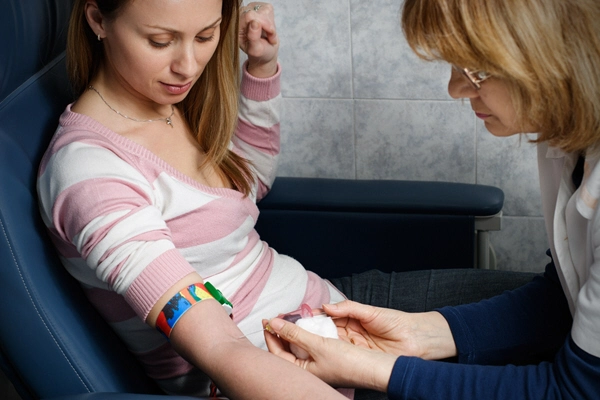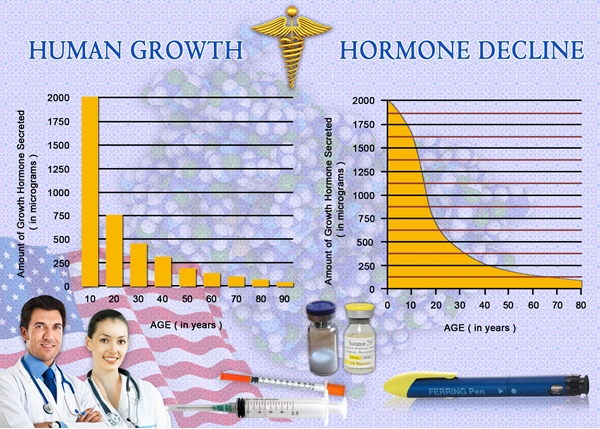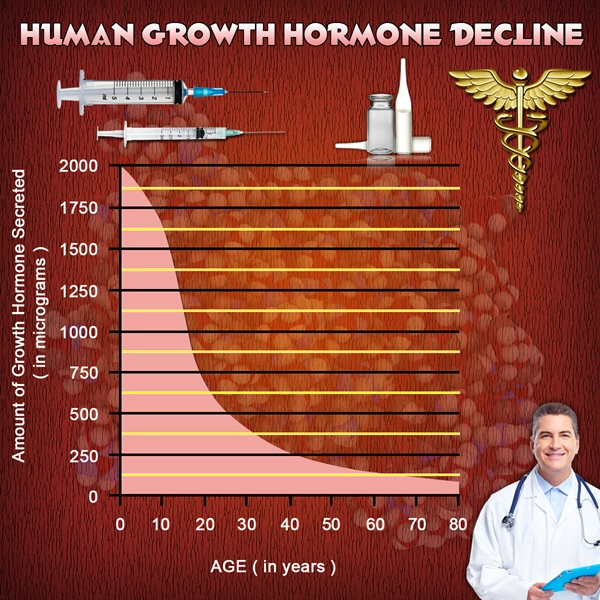Introduction
Urinary health is a critical aspect of overall well-being, particularly for American men, who may experience various urinary disorders throughout their lives. The field of endocrinology, which focuses on hormonal systems, plays a pivotal role in understanding and managing these conditions. Hormonal imbalances can significantly affect urinary function, leading to disorders such as benign prostatic hyperplasia (BPH), urinary incontinence, and even prostate cancer. This article delves into the intricate relationship between endocrinology and male urinary health, offering insights into how hormonal fluctuations influence urinary disorders and the importance of hormonal management in treatment strategies.
The Endocrine System and Urinary Health
The endocrine system, responsible for hormone production and regulation, is intimately linked to urinary health. Hormones such as testosterone, estrogen, and dihydrotestosterone (DHT) play crucial roles in the development and maintenance of the male urinary tract. For instance, testosterone is essential for prostate growth and function, but an imbalance can lead to enlargement of the prostate, known as BPH, which can obstruct urine flow and cause urinary symptoms.
Hormonal Imbalances and Benign Prostatic Hyperplasia (BPH)
BPH is a common condition among aging American men, characterized by the non-cancerous enlargement of the prostate gland. Research indicates that hormonal changes, particularly the conversion of testosterone to DHT, contribute to the development of BPH. DHT stimulates prostate cell growth, leading to an increase in prostate size that can compress the urethra and impair urinary function. Understanding these hormonal dynamics is essential for developing effective treatment strategies, such as hormone therapy, which aims to reduce DHT levels and alleviate BPH symptoms.
The Role of Hormones in Urinary Incontinence
Urinary incontinence, the involuntary leakage of urine, can also be influenced by hormonal imbalances. In men, lower testosterone levels associated with aging can weaken the pelvic floor muscles and affect bladder control. Additionally, changes in estrogen levels may contribute to urinary incontinence, as estrogen helps maintain the integrity of the urethral mucosa. Hormonal therapies that address these imbalances can be part of a comprehensive approach to managing urinary incontinence in American men.
Hormonal Influences on Prostate Cancer
Prostate cancer, a significant health concern for American men, is also linked to hormonal fluctuations. Androgens, particularly testosterone, play a critical role in the development and progression of prostate cancer. Hormone therapy, which aims to reduce androgen levels, is a common treatment for prostate cancer, highlighting the importance of endocrinology in managing this disease. Understanding the hormonal underpinnings of prostate cancer can lead to more personalized and effective treatment plans.
The Importance of Hormonal Screening and Management
Given the significant impact of hormonal imbalances on male urinary health, regular hormonal screening is crucial for early detection and management of urinary disorders. American men, especially those over the age of 50, should consider routine endocrinological assessments to monitor hormone levels and identify potential imbalances that could affect urinary function. Early intervention through hormonal management can prevent the progression of urinary disorders and improve quality of life.
Conclusion
The relationship between endocrinology and male urinary health is complex and multifaceted, with hormonal imbalances playing a significant role in the development and management of urinary disorders. American men must be aware of the impact of hormones on their urinary health and seek regular endocrinological evaluations to maintain optimal urinary function. By understanding and addressing hormonal fluctuations, healthcare providers can offer more effective treatments for conditions such as BPH, urinary incontinence, and prostate cancer, ultimately enhancing the well-being of American men.

- Unveiling the Efficacy of Clomiphene Citrate in Treating Secondary Hypogonadism in American Men [Last Updated On: December 13th, 2025] [Originally Added On: February 17th, 2025]
- Exploring the Efficacy of hCG Monotherapy Compared to Exogenous Testosterone in Young Men with Hypogonadotropic Hypogonadism: A Focus on Testicular Function [Last Updated On: March 3rd, 2025] [Originally Added On: March 3rd, 2025]
- Impact of Insulin Resistance on Male Hormonal Health: Strategies for Optimal Testosterone Levels [Last Updated On: March 7th, 2025] [Originally Added On: March 7th, 2025]
- Optimizing Vitamin D for Androgen Balance in Hormone Replacement Therapy: Clinical Considerations [Last Updated On: March 8th, 2025] [Originally Added On: March 8th, 2025]
- Optimizing Men's Health: Understanding Allostatic Load and Hormonal Balance for Personalized Therapies [Last Updated On: March 9th, 2025] [Originally Added On: March 9th, 2025]
- Multimodal Endocrine Evaluation for Fatigue in American Men: Beyond Testosterone [Last Updated On: March 11th, 2025] [Originally Added On: March 11th, 2025]
- Exploring Neurosteroid Modulation: A Breakthrough in Managing Stress-Related Endocrine Dysfunction in American Men [Last Updated On: March 12th, 2025] [Originally Added On: March 12th, 2025]
- Exploring the Therapeutic Potential of Selective Androgen Receptor Modulators in Male Endocrine Health [Last Updated On: March 13th, 2025] [Originally Added On: March 13th, 2025]
- Exploring the Role of Oxytocin in Male Endocrinology: From Physiology to Therapeutic Potential [Last Updated On: March 15th, 2025] [Originally Added On: March 15th, 2025]
- Precision Medicine in HRT: Genomic and Metabolomic Advances for American Men's Health [Last Updated On: March 16th, 2025] [Originally Added On: March 16th, 2025]
- Gut Microbiome's Role in Men's Steroid Hormone Metabolism: Emerging Insights and Challenges [Last Updated On: March 17th, 2025] [Originally Added On: March 17th, 2025]
- Thyroid-Testicular Axis: Impact on Male Health and Fertility [Last Updated On: March 18th, 2025] [Originally Added On: March 18th, 2025]
- EDCs' Impact on Male Health: Hormone Therapy and Detoxification Strategies [Last Updated On: March 18th, 2025] [Originally Added On: March 18th, 2025]
- Adipokines: Key Regulators of Male Endocrine, Metabolic, and Cardiovascular Health [Last Updated On: March 18th, 2025] [Originally Added On: March 18th, 2025]
- Ghrelin System Modulation: A New Frontier in Weight Management for Hypogonadal Men on TRT [Last Updated On: March 18th, 2025] [Originally Added On: March 18th, 2025]
- Somatostatin Analogues: Expanding Roles in Male Endocrinology and Health Management [Last Updated On: March 18th, 2025] [Originally Added On: March 18th, 2025]
- Chronobiology's Role in Optimizing Male Hormone Testing and Therapy Timing [Last Updated On: March 18th, 2025] [Originally Added On: March 18th, 2025]
- Mitochondrial Function and Male Hormonal Health: Age-Related Decline and Therapeutic Strategies [Last Updated On: March 19th, 2025] [Originally Added On: March 19th, 2025]
- Inflammaging and Endocrine Senescence: Optimizing Hormonal Health in American Males [Last Updated On: March 21st, 2025] [Originally Added On: March 21st, 2025]
- Trace Elements' Role in Hormone Metabolism for American Men's Health [Last Updated On: March 21st, 2025] [Originally Added On: March 21st, 2025]
- Metabolomics Revolutionizes Male Endocrine Diagnostics in American Males [Last Updated On: March 21st, 2025] [Originally Added On: March 21st, 2025]
- Pharmacogenomics Revolutionizes Hormone Replacement Therapy for Men: Tailoring Treatment to Genetic Profiles [Last Updated On: March 22nd, 2025] [Originally Added On: March 22nd, 2025]
- Exercise and Hormonal Dynamics in Men: Implications for Hormone Replacement Therapy [Last Updated On: March 22nd, 2025] [Originally Added On: March 22nd, 2025]
- Managing Male Climacteric Syndrome: Symptoms, Diagnosis, and Personalized Treatment Approaches [Last Updated On: March 22nd, 2025] [Originally Added On: March 22nd, 2025]
- Neuroendocrine Integration of Energy Balance and Reproduction in American Men: Clinical Insights [Last Updated On: March 23rd, 2025] [Originally Added On: March 23rd, 2025]
- Multimarker Cardiometabolic Risk Assessment for American Males on Hormone Replacement Therapy [Last Updated On: March 23rd, 2025] [Originally Added On: March 23rd, 2025]
- Free and Bioavailable Hormones: Key to Male Endocrinology for American Men [Last Updated On: March 24th, 2025] [Originally Added On: March 24th, 2025]
- Managing Prostate Health Safely During Testosterone Replacement Therapy: A Guide for American Men [Last Updated On: March 24th, 2025] [Originally Added On: March 24th, 2025]
- Pituitary Incidentalomas in Men: Evaluation, Management, and Long-Term Monitoring [Last Updated On: March 24th, 2025] [Originally Added On: March 24th, 2025]
- HRT and Telomere Length: Impacts on Aging and Longevity in American Males [Last Updated On: March 24th, 2025] [Originally Added On: March 24th, 2025]
- Subclinical Endocrinopathies in Men: Diagnosis, Treatment, and Health Impacts [Last Updated On: March 24th, 2025] [Originally Added On: March 24th, 2025]
- Male Biological Clock: Endocrine Impacts on Fertility and Offspring Health in Aging American Men [Last Updated On: March 24th, 2025] [Originally Added On: March 24th, 2025]
- Endocrine Frailty in Aging American Men: Understanding and Multimodal Intervention Strategies [Last Updated On: March 25th, 2025] [Originally Added On: March 25th, 2025]
- NAFLD and Male Endocrine Health: A Bidirectional Impact and Management Strategies [Last Updated On: March 25th, 2025] [Originally Added On: March 25th, 2025]
- Opioid-Induced Endocrinopathy in American Men: Mechanisms, Symptoms, and Management [Last Updated On: March 25th, 2025] [Originally Added On: March 25th, 2025]
- Diurnal Hormone Variations: Impact on Men's Endocrinology and Therapy Optimization [Last Updated On: March 25th, 2025] [Originally Added On: March 25th, 2025]
- Endocrine Reserve Testing in Men: Applications, Limitations, and Future Directions [Last Updated On: March 25th, 2025] [Originally Added On: March 25th, 2025]
- BMD Monitoring Protocols for Men on Hormone Replacement Therapy: Endocrinological Insights [Last Updated On: March 25th, 2025] [Originally Added On: March 25th, 2025]
- OSA's Endocrine Effects in Men: Beyond Testosterone to HPA, Thyroid, GH, RAAS [Last Updated On: March 25th, 2025] [Originally Added On: March 25th, 2025]
- Hormone Optimization: Preventing Sarcopenia in Aging American Males [Last Updated On: March 25th, 2025] [Originally Added On: March 25th, 2025]
- Longitudinal Epigenetic Changes from HRT in American Men: Endocrinological Insights [Last Updated On: March 26th, 2025] [Originally Added On: March 26th, 2025]
- SHBG: Beyond Transport - Its Role in Male Hormonal and Metabolic Health [Last Updated On: March 26th, 2025] [Originally Added On: March 26th, 2025]
- Managing Polycythemia in Men on Testosterone Therapy: Evidence-Based Strategies [Last Updated On: March 26th, 2025] [Originally Added On: March 26th, 2025]
- Biomarkers in Male Endocrinology: Growth Factors and Cytokines in Diagnosis and Treatment [Last Updated On: March 26th, 2025] [Originally Added On: March 26th, 2025]
- Testosterone's Immunomodulatory Effects on Autoimmune Diseases in American Men [Last Updated On: March 26th, 2025] [Originally Added On: March 26th, 2025]
- HPT Axis Recovery After Exogenous Testosterone: A Comprehensive Guide for American Men [Last Updated On: March 27th, 2025] [Originally Added On: March 27th, 2025]
- Neuropeptide Y: Key Regulator in Male Endocrine and Metabolic Health [Last Updated On: March 27th, 2025] [Originally Added On: March 27th, 2025]
- Hormone Replacement Therapy Enhances Cognitive Function in Aging Men: A Comprehensive Review [Last Updated On: March 27th, 2025] [Originally Added On: March 27th, 2025]
- Genetic Insights and Personalized Treatments for Male Hypogonadism [Last Updated On: March 27th, 2025] [Originally Added On: March 27th, 2025]
- Luteinizing Hormone: Key Roles in Men's Health and Endocrinology [Last Updated On: March 27th, 2025] [Originally Added On: March 27th, 2025]
- Leptin Resistance in American Men: Endocrine Impacts and Targeted Interventions [Last Updated On: March 27th, 2025] [Originally Added On: March 27th, 2025]
- ECS Influence on Male Reproductive Health: Insights for American Males [Last Updated On: March 27th, 2025] [Originally Added On: March 27th, 2025]
- Innovative Androgen Receptor Techniques Revolutionize Men's Hormone Therapy in the US [Last Updated On: March 27th, 2025] [Originally Added On: March 27th, 2025]
- INSL3: A Stable Biomarker for Assessing Leydig Cell Function in Men [Last Updated On: March 27th, 2025] [Originally Added On: March 27th, 2025]
- Post-Traumatic Hypopituitarism in American Men: Diagnosis, Treatment, and Support [Last Updated On: March 28th, 2025] [Originally Added On: March 28th, 2025]
- Vasopressin's Role in Male Endocrinology: Therapeutic Potential and Clinical Applications [Last Updated On: March 28th, 2025] [Originally Added On: March 28th, 2025]
- AMH's Expanding Role in Adult Male Endocrinology: From Fertility to Cardiovascular Health [Last Updated On: March 29th, 2025] [Originally Added On: March 29th, 2025]
- Inhibin B: Key Biomarker for Male Fertility and Testicular Health Assessment [Last Updated On: March 30th, 2025] [Originally Added On: March 30th, 2025]
- Long-term Endocrine Effects of Traumatic Brain Injury in Men: Management and Follow-up [Last Updated On: March 30th, 2025] [Originally Added On: March 30th, 2025]
- Chemotherapy-Induced Endocrine Disruption in Men: Monitoring and Intervention Strategies [Last Updated On: March 30th, 2025] [Originally Added On: March 30th, 2025]
- Hyperparathyroidism's Impact on Male Reproductive Health: Diagnosis and Management Strategies [Last Updated On: April 1st, 2025] [Originally Added On: April 1st, 2025]
- Radiation-Induced Hypopituitarism in Men: Hormonal Deficiencies and Replacement Therapies [Last Updated On: April 1st, 2025] [Originally Added On: April 1st, 2025]
- Chronic Kidney Disease: Impacts and Management of Male Endocrine Function [Last Updated On: April 3rd, 2025] [Originally Added On: April 3rd, 2025]
- Hemochromatosis in Men: Endocrine Effects, Screening, and Management Strategies [Last Updated On: April 5th, 2025] [Originally Added On: April 5th, 2025]
- Cushing's Syndrome in Men: Clinical Features, Diagnosis, and Hormone Therapy Management [Last Updated On: April 5th, 2025] [Originally Added On: April 5th, 2025]
- Endocrine Insights into Male Sexual Desire Disorders: Diagnosis and Treatment Options [Last Updated On: April 6th, 2025] [Originally Added On: April 6th, 2025]
- Adrenal Incidentalomas in Men: Endocrine Evaluation and Management Algorithm [Last Updated On: April 6th, 2025] [Originally Added On: April 6th, 2025]
- Hormonal Factors and Treatment Strategies for Male Stress Urinary Incontinence [Last Updated On: April 7th, 2025] [Originally Added On: April 7th, 2025]
- Optimizing GH and IGF-1 in Male Athletes: Performance, Health, and Ethics [Last Updated On: April 8th, 2025] [Originally Added On: April 8th, 2025]
- Osteoporosis in Men: Diagnosis, Endocrine Evaluation, and Multifaceted Management Strategies [Last Updated On: April 9th, 2025] [Originally Added On: April 9th, 2025]
- Enhancing Endocrine Resilience in American Men: Biological Mediators and Lifestyle Strategies [Last Updated On: April 10th, 2025] [Originally Added On: April 10th, 2025]
- Endocrine Management of Hormone Therapy in Transgender Men: Protocols and Health Outcomes [Last Updated On: April 10th, 2025] [Originally Added On: April 10th, 2025]
- Male Hormonal Contraception: Endocrine Mechanisms and Clinical Progress in American Males [Last Updated On: April 11th, 2025] [Originally Added On: April 11th, 2025]
- HRT in Male Fertility: Current Practices and Future Innovations for American Men [Last Updated On: April 12th, 2025] [Originally Added On: April 12th, 2025]
- AI Revolutionizes Precision Endocrinology for Personalized Men's Hormone Therapy [Last Updated On: April 12th, 2025] [Originally Added On: April 12th, 2025]
- Androgen Action: Molecular Biology and Targeted Endocrine Therapies in Men [Last Updated On: April 14th, 2025] [Originally Added On: April 14th, 2025]
- Validating and Implementing PROMs in Male Endocrinology for American Men [Last Updated On: April 15th, 2025] [Originally Added On: April 15th, 2025]
- CGM's Role in Managing Endocrine Disorders in American Men: Beyond Diabetes [Last Updated On: April 16th, 2025] [Originally Added On: April 16th, 2025]
- Integrative Endocrinology: Holistic Hormone Management for Men's Health [Last Updated On: April 17th, 2025] [Originally Added On: April 17th, 2025]
- Wearable Tech Revolutionizes Hormone Monitoring for Men's Health [Last Updated On: April 17th, 2025] [Originally Added On: April 17th, 2025]



List of USA state clinics - click a flag below for blood testing clinics.
Word Count: 568


















































